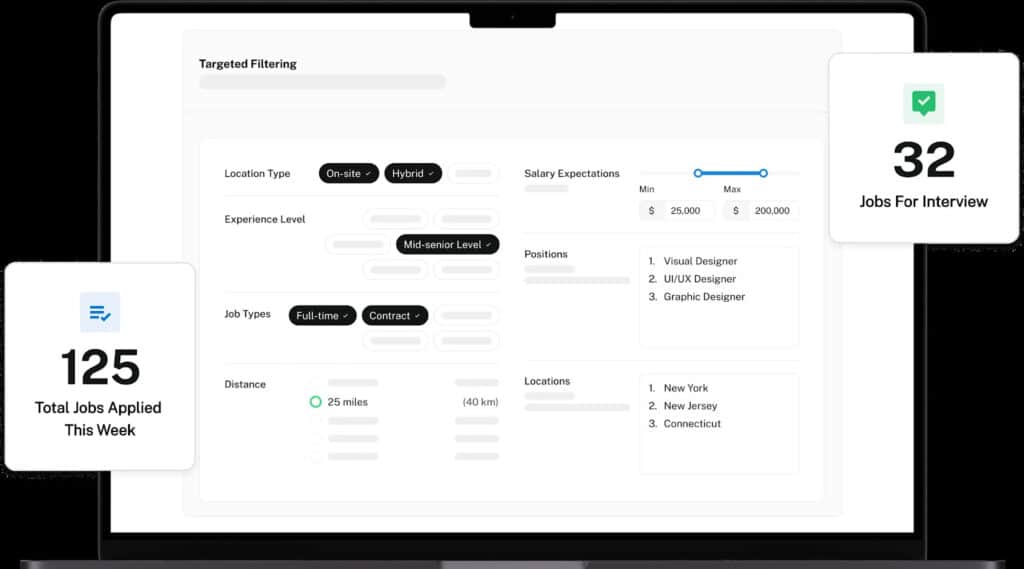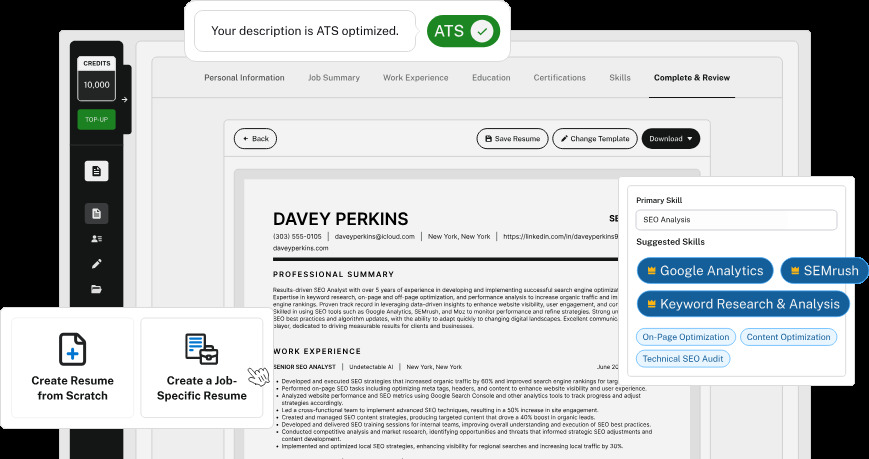Unnecessary meetings? Constant interruptions? The dreaded open-plan workspace?
These are just a few of the many office clichés that you either love or hate.
If you’re like the 86% of people around the world prefer working alone, though, you’re likely in the latter group.
However, it’s not just about preference—these preferences also affect productivity.
1 in 6 desk workers report losing 2 hours a day to distractions.
7% admit to spending around three hours of the workday distracted
This equates to around 15 hours a week and 74 working days over the course of a year. How much money is wasted there?
Working solo doesn’t mean isolating yourself completely from humanity.
Rather, it means finding a career where you control your interactions, set your own pace, and enjoy stretches of uninterrupted focus.
These jobs can be surprisingly lucrative and fulfilling, offering both the freedom of independence and the satisfaction of seeing your individual efforts directly reflected in your work.
In this guide, we’ll explore the best jobs where you work alone, how to find them, what you can expect to earn, and how to succeed in a solo working environment.
This roadmap will help you navigate toward a career that respects your need for space while allowing you to thrive professionally.
Why Choose a Job Where You Work Alone?

The traditional workplace isn’t designed for everyone. As Susan Cain pointed out in her groundbreaking book “Quiet,” workplaces often favor extroverted personalities despite introverts making up 30-50% of the population.
Benefits of Working Solo
Working alone isn’t just a personal preference; there are real advantages that come with it:
- Fewer distractions and interruptions. The average office worker is interrupted every 11 minutes, and it takes approximately 25 minutes to refocus after each interruption. Solo work environments eliminate many of these productivity killers.
- Greater autonomy and control. When you work alone, you often have more say over your schedule, workspace, and methods. It provides autonomy that can lead to greater job satisfaction and reduced stress.
- No office politics. Workplace conflicts and political maneuvering consume mental energy and create stress. Solo careers typically minimize these interpersonal complications.
- Deeper focus and flow states. Psychologist Mihaly Csikszentmihalyi’s research on “flow”—that ideal state of complete immersion in a task—shows it’s more achievable in distraction-free environments.
- Alignment with introverted strengths. If you’re naturally introspective, reflective, and self-motivated, solo work environments allow these qualities to become professional assets rather than challenges to overcome.
- More efficient work processes. Without the need for consensus or approval at every step, solo workers often develop streamlined workflows that maximize efficiency.
- Reduced commute time and costs. Many solo careers can be performed remotely or from home, eliminating the financial and mental costs of daily commuting.
Challenges of Working Alone
While working alone offers many advantages, it’s important to recognize the potential drawbacks:


Never Worry About AI Detecting Your Texts Again. Undetectable AI Can Help You:
- Make your AI assisted writing appear human-like.
- Bypass all major AI detection tools with just one click.
- Use AI safely and confidently in school and work.
- Limited collaboration. Working solo means fewer opportunities to bounce ideas off colleagues or benefit from diverse perspectives.
- Self-motivation requirements. Without external accountability, you’ll need strong self-discipline and intrinsic motivation.
- Professional isolation. Missing out on workplace camaraderie and networking can impact both your social life and career advancement opportunities.
- Responsibility for all aspects of work. When you work alone, there’s no one to pick up the slack or help when you’re overwhelmed.
- Potential for burnout. Without colleagues to notice warning signs, solo workers must be vigilant about maintaining work-life boundaries.
- Fewer structured learning opportunities. You’ll need to seek out your own professional development rather than relying on workplace training programs.
- Income instability. Many solo careers involve freelancing or self-employment, which can mean less predictable income streams.
Understanding these challenges doesn’t mean you should avoid a solo career.
Instead, it’ll help you approach them with realistic expectations and develop strategies to overcome any hurdles.
Best Jobs Where You Work Alone (With Salary & Requirements)
If you’ve decided that a solo career path matches your work style, here are some of the best options to consider, complete with median salaries and basic requirements.
Many of these roles are considered white-collar jobs, offering professional, knowledge-based work that doesn’t require manual labor.
However, several solo careers also provide opportunities in the blue-collar job category, where hands-on skills and technical expertise are in high demand.
Medical Transcriptionist
- Median Salary: $30,100
- Requirements: Certificate program (typically 6-12 months), strong typing skills
- Work Environment: Usually remote, transcribing medical reports, test results, and doctor’s notes
Truck Driver
- Median Salary: $50,340
- Requirements: Commercial Driver’s License (CDL), clean driving record
- Work Environment: On the road, minimal supervision, largely independent
Freelance Writer
- Median Salary: $69,510 (varies widely based on specialization and client base)
- Requirements: Strong writing skills; a bachelor’s degree is helpful but not always required
- Work Environment: Remote, self-directed, deadline-driven
Court Reporter
- Median Salary: $65,240
- Requirements: Associate’s degree or certificate in court reporting, state licensure
- Work Environment: Courtrooms, depositions, with minimal direct supervision
House Inspector
- Median Salary: $62,860
- Requirements: State license, training program (usually 1-2 years)
- Work Environment: Independent visits to properties, report writing
Actuary
- Median Salary: $111,030
- Requirements: Bachelor’s degree in mathematics or a related field, passing specialized exams
- Work Environment: Often independent analysis work, some team collaboration
Archivist
- Median Salary: $57,500
- Requirements: Master’s degree in history, library science, or archival studies
- Work Environment: Quiet museum or library settings, focused on preservation work
Landscape Designer
- Median Salary: $70,630
- Requirements: Bachelor’s degree in landscape architecture, state licensure
- Work Environment: Split between independent design work and client meetings
Software Developer
- Median Salary: $120,730
- Requirements: Bachelor’s degree in computer science or equivalent experience
- Work Environment: Can be remote or office-based, often involves long stretches of independent coding
Wildlife Photographer
- Median Salary: $50,290 (varies widely)
- Requirements: Technical photography skills, patience, specialized equipment
- Work Environment: Outdoor locations, often in remote areas, entirely self-directed
Accountant or Bookkeeper
- Median Salary: $77,250 for accountants; $45,560 for bookkeepers
- Requirements: Bachelor’s degree for accountants; certification for bookkeepers
- Work Environment: Can be remote or office-based, focused on individual tasks
Translator/Interpreter
- Median Salary: $49,110
- Requirements: Fluency in multiple languages, certification helpful
- Work Environment: Often remote work for translators; interpreters may need to be on-site
Electrician
- Median Salary: $60,040
- Requirements: Apprenticeship program, state licensure
- Work Environment: Independent job sites, minimal supervision after training
Web Developer
- Median Salary: $77,200
- Requirements: Technical skills, portfolio (degree helpful but not always required)
- Work Environment: Often remote, project-based work
Please note that salaries can vary based on factors such as location, experience, and industry demand.
Each of these careers offers significant solo work time, though many still involve some level of client interaction or occasional team collaboration.
The key is that the core work functions can be performed independently.
How to Find Jobs Where You Work Alone
Finding the right solo career is all about finding opportunities that match your skills and come with the right work environment.
Here are strategies to help you locate these positions:
- Identify your work style preferences. Be honest about how much isolation you actually want. Some people prefer zero interaction, while others simply want control over when and how they interact with colleagues.
- Search with specific keywords. When browsing job boards, include terms like “independent contractor,” “remote,” “autonomous,” “self-directed,” or “work from home.”
- Look for asynchronous companies. Some organizations operate primarily through asynchronous communication (like email and project management tools), reducing the need for meetings and real-time interactions.
- Consider specialized job boards. Sites like FlexJobs, We Work Remotely, and Upwork often feature positions with high autonomy.
- Network with solo professionals. Connect with people already working in fields that interest you to learn about opportunities and working conditions.
- Leverage technology for your job search. Tools like Undetectable AI Smart Applier can streamline your application process, automatically submitting your information to relevant job postings that match your criteria for solo work.
It runs 24/7 to find and apply for the best job opportunities that match your skills. Here’s how it works:

- Instantly generate a standout resume using AI. Upload your resume and connect your LinkedIn profile for tailored applications.
- Personalize your job search by setting filters and criteria so the AI targets only the best-fit positions.
- With one click, the AI automates the entire application process, submitting applications while you focus on other things and even while you sleep.
This technology can be particularly valuable for solo career seekers, as it reduces the need for networking and cold outreach—challenging aspects of job hunting for those who prefer independent work.
FAQs About Jobs Where You Work Alone
What are the best jobs where you work alone?
The best solo jobs depend on your goals. If income is your priority, software development and data science pay well.
For flexibility, freelance writing and web development offer control over your schedule. If you want stability, careers like accounting and translation provide steady demand with minimal supervision.
Are there high-paying jobs where you work alone?
Yes. Many solo careers offer six-figure potential, including software development ($110K+), data science ($126K+), and air traffic control ($129K+).
High-paying roles often require technical skills or experience, but careers like technical writing and commercial piloting also offer strong earning potential without advanced degrees.
Do solo jobs require a degree?
Not always. Some careers, like data science or engineering, require degrees, but many—like web development, photography, and skilled trades—focus on skills over credentials.
Certifications, apprenticeships, and self-learning can open doors to high-paying solo careers without formal education.
Final Tips for Finding & Thriving in a Job Where You Work Alone
Working alone amplifies both the rewards and challenges of your chosen field.
When you lack daily team interaction, your intrinsic interest in the work becomes even more important for sustained motivation.
Choose a Career That Matches Your Interests
Before committing to a solo career path, ask yourself:
- Would I find this work engaging even without colleagues to share it with?
- Does solving the core problems in this field energize me?
- Can I picture myself maintaining interest in this work for years?
- Do I naturally seek out learning opportunities in this area?
A solo career that aligns with genuine interests will feel liberating rather than isolating.
Build a Strong Online Portfolio or Resume
Since you won’t have colleagues to vouch for your work, your portfolio or resume must speak for itself.
Consider these approaches:
- Showcase tangible results and metrics from past work
- Include detailed case studies demonstrating your problem-solving process
- Obtain and highlight testimonials from previous clients or supervisors
- Maintain an active professional social media presence
- Regularly update your skills and certifications

Tools like Undetectable AI’s Resume Builder can help optimize your resume specifically for jobs where independent work is valued.
This AI-powered platform:
- Creates a professional resume instantly by analyzing your experience and industry.
- Personalizes each application with industry-specific keywords and expert suggestions.
- Optimizes for ATS systems, ensuring your resume passes automated screening.
- Humanizes your resume for a natural, recruiter-friendly feel.
A well-crafted resume focused on independent achievement can open doors to solo opportunities that might otherwise remain closed.
Success in Solitude
Working alone means creating the best environment for focus, autonomy, and deep work.
Today, technology has made solo careers more accessible, whether through freelancing, remote work, or independent contracting.
Success in solo work comes from balancing independence with strategic connections. Build networks, seek mentorship, and find like-minded professionals—all on your own terms.
Ready to take the next step?
Undetectable AI tools can help you craft the perfect resume and streamline job applications, making your transition to solo work easier than ever.
Don’t forget to explore our AI Detector and Humanizer in the widget below!
Try them today!
